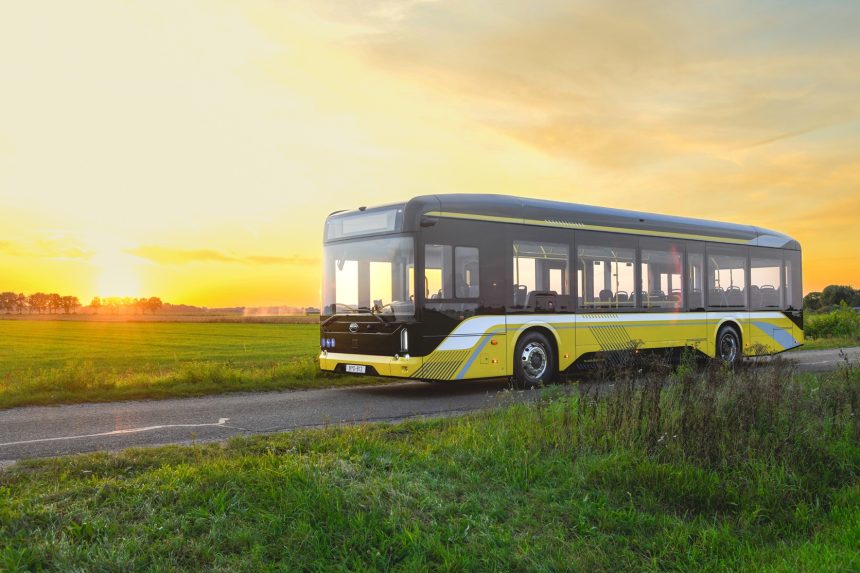Here at Zemo Partnership, we continue to marvel at the accelerated improvements in the field of battery technology.
Battery prices coming out of China are rapidly decreasing, with CATL having halved costs this year following slower than anticipated demand in the domestic market. BYD recently introduced its Blade battery, which demonstrates significantly improved safety to prevent thermal runaway, among other benefits.
Battery warranties have continued to improve, with Alexander Dennis offering an option of up to 12-year coverage on its latest battery-electric model. That is not too far from the energy storage lasting the expected lifetime of a bus, or at least two contracted cycles in London.
Toyota has announced that production of solid-state batteries for the mass market will begin in 2026. They will have a greater energy density, meaning that they will be smaller and lighter, alongside having much faster charging times.
Wrightbus’s recently founded NewPower battery-electric repower arm adds credence to that technology, as well as being a longer-term investment in the facilities that are needed to replace batteries in electric buses and not just for repowering.
However, do all these improvements mean that the UK bus industry is ready to move commercially into the zero-emission bus (ZEB) space without government support?
So far, ZEB uptake in the UK has been among the fastest in Europe. In 2023, over 50% of new bus registrations here were battery-electric, following two previous successive years at the same level. 2024 has followed suit, with battery-electric registrations accounting for nearly 60% of the total market.
What is interesting to note is that 2023 saw much higher registrations of diesel buses than in previous years. That shows the industry is recovering, but operators are still choosing battery-electric as the way forward while funding is available.
The success to date has been down to consistent rounds of grants that have supported both vehicles and infrastructure. However, there have been few signs that the new government is prioritising decarbonisation of public transport in its first year. There has been no mention of grants for ZEBs, or an end date for the sale of new non-zero-emission buses.
Transport Scotland has stated that it will provide no more funding for ZEBs in the coming years, with the second round of the Scottish Zero Emission Bus challenge fund aimed at demonstrating financing models that will take away the need for upfront capital grants – in theory at least!
The Buses Bill in England will expand franchising powers to all local transport authorities (LTAs), but there has been little to no detail about how franchising will be funded and if or how decarbonisation sits as a priority.
While granting more decision-making powers at a local level is seen as a positive, it could be that many LTAs will have to choose between franchising and decarbonisation in the short-term thanks to budgetary constraints.
There is always the elusive BSOG reform in England, which could be a simple and stable way of closing the cost gap between battery-electric and diesel. But it feels like the new government is going to take a step back and watch how the market unfolds as the remainder of existing grants are deployed.
Technology is no longer the barrier to the transition to net-zero that it has been over the last decade. With the battery-electric offer continuing to improve, it will be interesting to watch how committed operators and local authorities will be to meeting decarbonisation goals without top-down support from national government pockets.



























